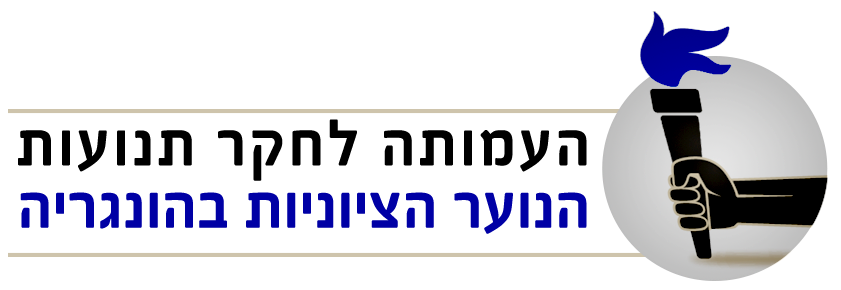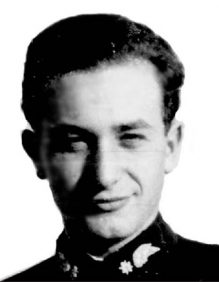Efra was raised in a traditional Jewish family and was the oldest of eight children. At the age of sixteen he joined “Bnei Akiva” and later “Hashomer Hatzair” within whose framework he worked for the underground.
In 1943 he was drafted to forced labor service, but managed to evade it and joined the underground activities in Budapest. From March 19, 1944, he dealt with “Aryanization”, visited Jewish communities in order to assist them and warn them of their expected fate. Between June and August he took part in the tiyul activities, and was in charge of contacts between Hungarian members of the movement in labor camps and jails and the underground. He used the name Imre Benkø, and wore a railway officer’s uniform. He was one of the liaison people with the Pál Demény communist underground.
Efra distributed forged documents. Under the auspices of the International Red Cross, he was one of the founders of children’s houses established by the underground. He supplied food and equipment to those houses, as well as to the central ghetto in the seventh district, the “Glass House” in Vadász Street, and its branch in Wekerle Street, and other starving Jews in the ghetto.
After the liberation he continued his work with the children, and assisted in organizing the illegal immigration of the “Hashomer Hatzair” movement members to Eretz Israel (Palestine). In 1946 Efra was a member of a delegation to the Zionist Congress in Basel.
Efra made aliya at the end of 1946. At first, he stayed in Kibbutz Ein Dor and later became a member of Kibbutz Ha’ogen, where he lived until 1971.
Efra is a member of the Society for the Research of the History of Zionist Youth Movements in Hungary. He resides in Mevaseret Tzion and owns a private import company.
His autobiography published in 2008 – Efraim Agmon: Shomer Ahai (On Guard) Hebrew. Maarachet, Kibbutz Dalia. 2008.



